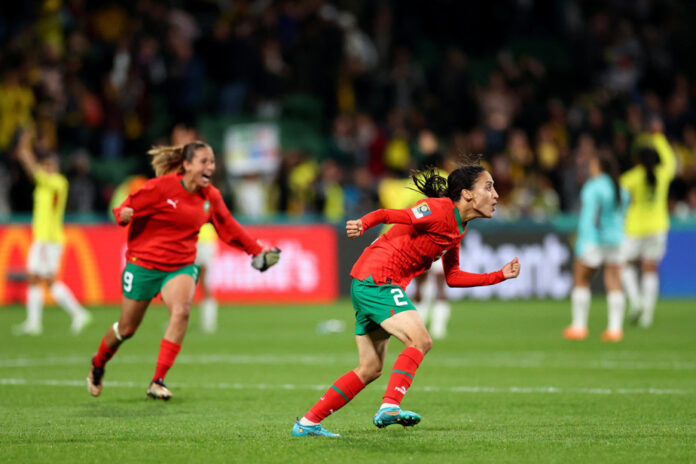(Sydney) Change is happening fast in women’s soccer.
Parity in competitive level was demonstrated at the Women’s World Cup, which saw two-time tournament champions Germany eliminated on Thursday.
In the biggest surprise of an already well-endowed World Cup, the Germans, second in the world, failed to advance to the knockout stage for the first time in their history.
The Brazilians, champions of the America’s Cup, and the Canadians, gold medalists at the Olympic Games in Tokyo, were also eliminated during the group stage. Meanwhile, Morocco, South Africa and Jamaica all made history on their way to the elimination round.
“To be honest, I’m really surprised. I think when you see Germany or Brazil being eliminated in the group stage, nobody could have predicted it, expressed Jill Ellis, who led the American team in the 2015 and 2019 World Cups. .
“Am I excited about the development? Of course. But I thought there would be another World Cup performance before we see the parity that we’re starting to see right now. »
But the United States struggled in the group stage. This was also the case for France, fifth in the world.
Growing parity in women’s soccer led to an exciting group stage at the World Cup, which ended with Morocco winning 1-0 over Colombia while Germany were held to a draw1 -1 by South Korea.
Gone are the days when underrated teams were awed by the powerhouses of soccer. Jamaica muzzled France in a 0-0 draw to open the tournament and knocked out Brazil in their final Group F encounter.
“I think small nations think they can also achieve big things,” Jamaica head coach Lorne Donaldson said.
South Africa meanwhile stunned Italy with a 92nd-minute winner to advance to the elimination round.
Teams become wiser.
Jamaica, for example, have yet to concede a goal after three group matches.
Haiti caused England problems with the speed of their counterattacks in their opener. European champions England needed a twice attempted penalty from Georgia Stanway to win 1-0.
“We may not have the resources of the big countries in terms of equipment, travel and matches, but I think there is an understanding with the coaches and the technical staff. Our preparation is somewhat better across the board,” Donaldson noted.
“We are working on programs that aim to improve the quality of leagues, the competitions that players participate in every day,” Sarai Bareman, director of women’s soccer at FIFA, told The Associated Press. We are working on professionalization. We have the data and the research to understand what makes a club successful and how to replicate that in other countries. »
According to Ellis, soccer “is truly becoming a global sport.”
There were doubts about FIFA’s decision to expand the tournament to 32 teams, down from 24 in 2019. The fear was that it would lead to more one-sided matches and a dilution of quality.
The reverse happened. The new format also means that only the top two teams from each group can advance to the next round. This removed the third-place backstop that can be enough to get a bye into the elimination stage.
“You have Jamaica, South Africa, Morocco qualifying for the knockout stage for the very first time. Teams like New Zealand, Philippines, Zambia also won the World Cup for the first time. These are incredible times,” concluded Bareman.















